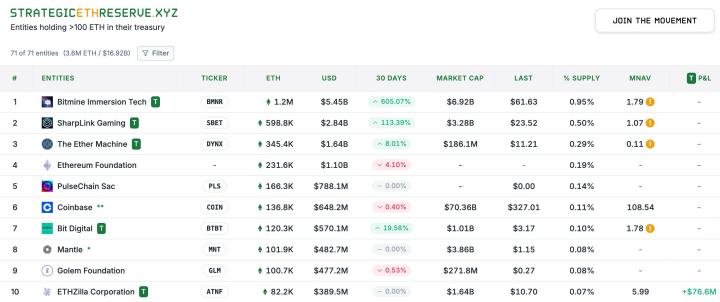
Banks in the United States may soon face penalties if they apply financially restrictive measures with political motives against the cryptocurrency sector, as the White House is expected to issue a new executive order to change how financial institutions behave.
This move is expected to end the trend of banks refusing services to cryptocurrency businesses – a trend previously criticized as Operation Chokepoint 3.0.
- The White House plans to issue an order penalizing banks that restrict financial services with political motives towards cryptocurrency businesses.
- Operation Chokepoint 3.0 is a criticized trend of banks refusing services to sectors deemed "politically less priority".
- The new order could reverse the situation, reinforcing neutrality and equal financial access principles.
In the long term, this could open up strong growth opportunities for DeFi and CeFi platforms, as well as blockchain technology innovation in the United States, while reducing brain drain to international markets.
Experts believe that breaking down "discrimination barriers" will promote competition, stimulate digital financial investment, especially when the United States is facing strong competition from blockchain centers in Europe, Singapore, and Hong Kong.
Comparison: Banking Policy with Cryptocurrency in the United States and Other Markets
The differences in financial service access, innovation support, and policy intervention levels between the United States and some leading markets are clearly shown in the following summary table:
| Country/Region | Banking Service Access for Cryptocurrency Businesses | Regulatory Policy | Attitude towards Digital Financial Innovation |
|---|---|---|---|
| United States | Often restricted, especially under Operation Chokepoint 3.0 | Not unified, moving towards stronger reforms | Cautious, emphasizing risk control |
| European Union (EU) | Open, MiCA initiative encourages banks to facilitate | Clear regulations on standards and investor protection | Supportive of technological innovation |
| Singapore | Easy access, many banks serving blockchain businesses | Transparent legal framework, many incentives | Strongly supporting innovation experiments |
| Hong Kong | Flexible account opening, leveraging Sandbox framework | Proactive management, prioritizing digital asset development | Attracting international businesses |
Business Community Reaction and Global Digital Asset Policy
In the context of increasingly fierce global blockchain competition, the trend of financial service discrimination in the United States is seen as a major barrier for domestic businesses.
The U.S. government's executive order to eliminate Operation Chokepoint 3.0 is expected to end the period of "making things difficult" for cryptocurrency businesses, activate a new wave of investment, and increase global investor confidence.
At the same time, other developed countries are continuously updating their legal frameworks, creating advantages for businesses looking to diversify their operations on a global scale through digital asset development support policies.
Summary: Development Orientation and Future Expectations
Looking back at the journey of Operation Chokepoint from the early 2010s to now, the impact of banking policies on the cryptocurrency ecosystem is clearly visible.
The strong policy shift - expected to be announced by the White House - is assessed not only as removing obstacles for domestic businesses but also enhancing the United States' competitive position on the global financial map.
Additionally, experts recommend that businesses continue to improve governance standards, legal compliance, and increase transparency to both leverage advantages from the new policy and contribute to building a sustainable digital asset ecosystem in the United States.
Frequently Asked Questions
What is Operation Chokepoint 3.0?
It is a phenomenon where U.S. banks restrict services to cryptocurrency businesses or sectors facing "negative political assessment", leading to difficulties in financial access and being criticized as unfair.
How does the new White House executive order affect the cryptocurrency industry?
The order hopes to create a competitive, equal environment, eliminate discrimination, and promote blockchain technology investment in the United States.
Why is Operation Chokepoint 3.0 controversial?
Because it obstructs innovation, restricts capital access, and creates development barriers for legitimate digital financial businesses.
How do major U.S. banks respond to discrimination allegations?
They deny political motives but face strong reform pressure from public opinion, the cryptocurrency community, and policymakers.
Under what circumstances will bank penalties be applied?
When a bank is found to restrict financial services due to political factors, violating equal credit opportunity access, competition, or consumer protection.
What is the global policy regarding banks and blockchain businesses?
Financial centers like the EU, Singapore, and Hong Kong allow easier banking access, with more transparent legal frameworks compared to the United States.
What should individual investors do in the face of this trend?
They should closely follow policy developments, prioritize choosing transparent financial partners, and proactively manage risks to protect assets against systemic changes.







